The punch that launched Trump’s war on American universities
Threats to withhold billions in federal research funds to punish campuses grew heated after a 2019 altercation left a man with a black eye.

Harmeet Dhillon, head of the civil-rights division at the Justice Department, wakes up around 6am and begins her workday scrolling through X, searching for claims of discrimination.
A lot of them, Dhillon said, regard universities. After spotting “a list of new horrors,” she said, “I text my deputies, and we assign cases, and we get cranking.”
The Trump administration is on the hunt for campuses that have allegedly tolerated anti-Semitism, threatening to yank billions of dollars in federal research funding from Harvard and other top-name schools. The White House has accused universities of failing to protect Jewish students during campus protests against Israel over the war in Gaza that began in 2023.
Yet the idea of targeting elite schools by withholding federal funds originated years earlier. Many conservatives have long studied ways to combat what they view as the liberal, anti-Western ills of American higher education. Some are now in the Trump administration, trying to push change.
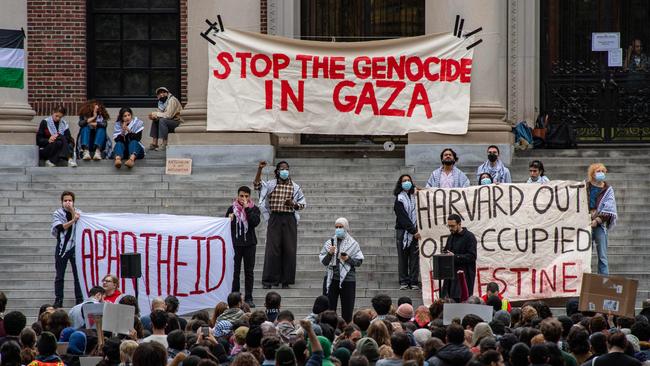
While Dhillon was a student at Dartmouth College, she was editor in chief of a conservative college newspaper that sued the school in a free-speech case. She said the lawsuit, which got students reinstated, cemented her career path. In 2018, she was the lawyer on a lawsuit that forced the University of California, Berkeley to revamp its speaker policies.
Trump has since become preoccupied with the White House push — headed by Stephen Miller, the president’s top domestic policy adviser — to influence US universities, particularly Harvard, according to administration officials. Harvard is going to court Thursday to oppose administration efforts to forbid international students from enrolling at the school.
“Harvard wants to fight,” Trump told reporters Wednesday in the Oval Office. “They want to show how smart they are, and they’re getting their ass kicked.”
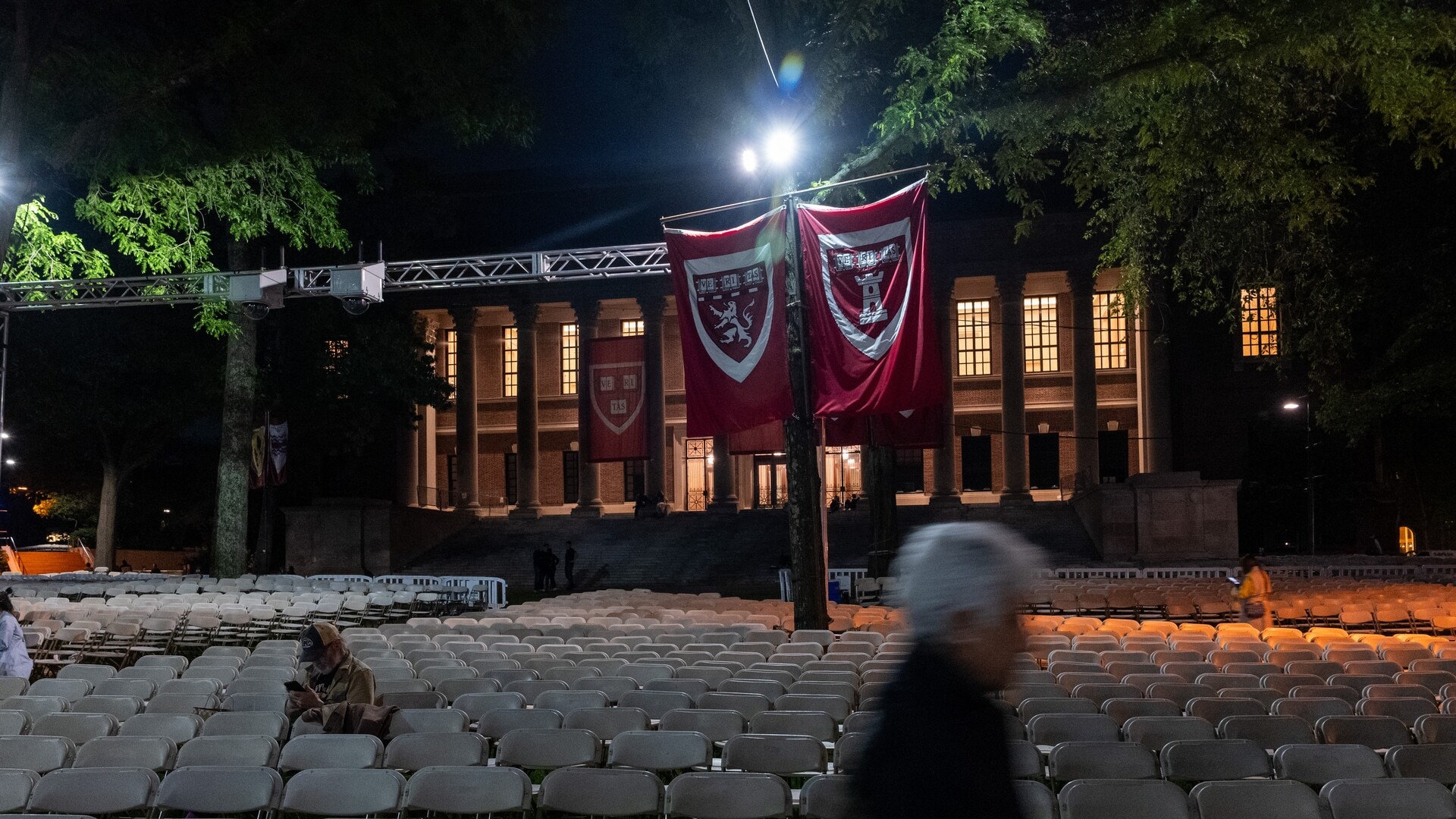
Leaders in Trump circles have argued that universities were so deeply stewed in progressive ideas that small, incremental changes wouldn’t be enough — that the federal government needed to force a major cultural shift. For years, the notion went nowhere.
Steve Bannon, a former Trump adviser, said he, Miller and others close to the president talked about asserting more control over universities in the early days of Trump’s first term. “The idea was nothing more than a concept back then,” said Bannon, a Georgetown and Harvard graduate. “You couldn’t even call it an idea.”
Then a punch in the face grabbed Trump’s attention.
Black eye
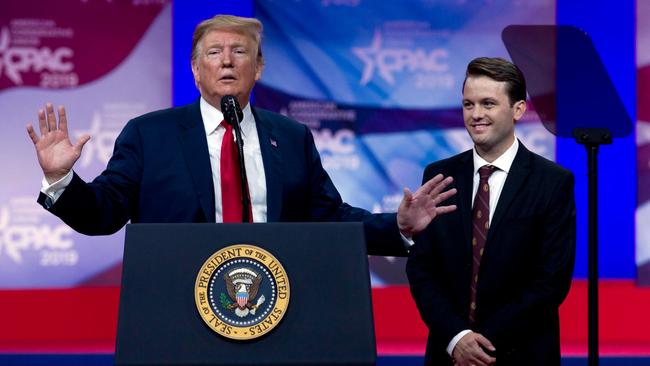
In February 2019, Hayden Williams set up a table at UC Berkeley, where he was helping recruit students to join Turning Point USA, a youth-outreach group founded by conservative activist Charlie Kirk. A man taunted Williams and delivered a sucker punch. Neither the attacker, who was later arrested, nor Williams were students at the school.
Video of the attack went viral and Williams, sporting a black eye, appeared on Fox News.
Kirk recalled Trump saying at the time, We’ve got to do something about this. Kirk said he told Trump that it was a chance to stand up for conservative students, and that they talked about withholding federal funding for free-speech violations. Donald Trump Jr. has credited Kirk for pushing the strategy.

About two weeks after the altercation, Trump brought Williams onstage at the Conservative Political Action Conference. Trump said he planned to sign an executive order requiring colleges and universities to uphold free speech if they want federal research money.
“If they don’t, it will be very costly,” Trump said.
Soon after, Trump signed the executive order. It was stalled by opponents, who included congressional Republicans and some in the White House. Republican Sen. Lamar Alexander, chair of the Senate’s education committee, questioned whether the order was constitutional.
“I don’t want to see Congress or the president or the department of anything creating speech codes to define what you can say on campus,” Alexander said at the time.
The roadblock echoed an earlier era. President Richard Nixon wanted to cut off Defence Department funding from the Massachusetts Institute of Technology in response to campus anti-war protests, but members of his administration pushed back, historian Michael Koncewicz said.
The first Trump administration nonetheless laid legal groundwork for the current fight.
In 2020, after the administration tried and failed to stop money going to projects Trump opposed, the Office of Management and Budget adjusted federal grant regulations.
The new rule permitted the termination of projects “if an award no longer effectuates the program goals or agency priorities.”
It was an opening waiting for its moment.
‘The enemy’
During the four years between Trump’s first and second terms, some of his former administration officials began planning another crack at reining in higher education.
Conservative higher-education policymakers mapped how they could use executive power, anticipating that Republicans might not have 60 votes needed to overcome a Senate filibuster.
“There was a lot of energy to boldly plan for the maximum higher-education reform that would be justified at the federal level,” recalled Adam Kissel, who was a deputy assistant secretary for higher-education programs at the Education Department during Trump’s first term.
Vice President JD Vance, a Yale Law School graduate, made the point clear during a speech at the 2021 National Conservatism conference, titled “The Universities Are the Enemy.”
Pro-Palestinian demonstrations, following the Oct. 7, 2023 attacks and subsequent war in Gaza, provided the surprise push.
During a congressional hearing that December, House members questioned campus presidents from three high-profile universities about reports of anti-Semitism. Rep. Elise Stefanik (R., N.Y.), a top Trump ally and Harvard graduate, drew national attention with her inquiry.
“Does calling for the genocide of Jews violate MIT’s code of conduct or rules regarding bullying and harassment, yes or no?” she asked Sally Kornbluth, the MIT president. Kornbluth didn’t say yes, it was. Neither did the two other presidents.
Stefanik said Claudine Gay, then-president of Harvard, should resign.
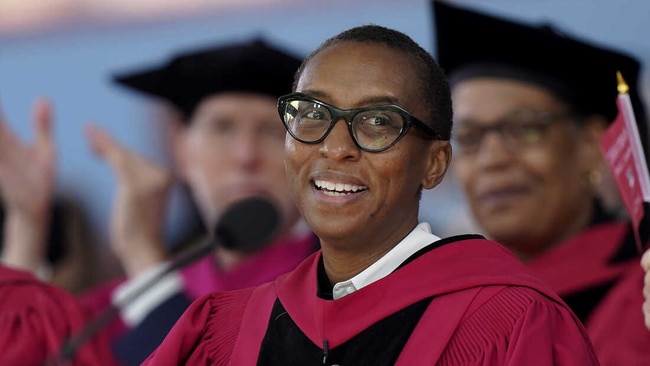
The video of the hearing was viewed billions of times, Stefanik said. Both Gay and Liz Magill, then-president of University of Pennsylvania, resigned in the lingering criticism that followed.
“It shows that it was a seminal moment,” Stefanik said, “and it set off an earthquake in higher ed.”
Conservative think tanks, packed with Trump allies, seized the moment.
In January 2024, the Heritage Foundation held an event to launch a National Task Force to Combat Anti-Semitism. A number of Trump’s first-term officials joined, including David Friedman, former ambassador to Israel. He said anti-Semitism had become “a full five-alarm fire” that has “infiltrated and insinuated itself into the halls of the Ivy League.”
“You can walk into a cocktail party in Manhattan and spout Nazi rhetoric and you’ll be shown the door,” Friedman said in a video aired during the task-force launch. “But if you express the conviction that Israel should not exist, you will probably be poured a drink.”
Friedman proposed a four-point prescription, beginning with “take away their money,” he said.
“Hate groups must lose their tax-exempt status, and universities that don’t protect their students should lose their government funding,” Friedman said.
Word to the wise
Trump’s team was emboldened by his 2024 victory, which drew support across nearly every demographic group, including a significant boost from younger voters.
Morton Klein, president of the Zionist Organization of America, believed he had a receptive audience in the second Trump administration. He provided a list of schools he believed should be investigated, based, in part, on his own unwelcome experiences speaking there. The list included Harvard, Columbia, Duke and New York universities, as well as U Penn and University of California, Irvine.
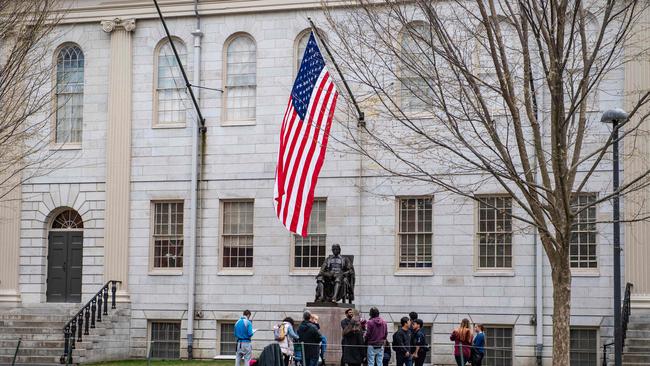
Within about two weeks of Trump’s inauguration, the Justice Department announced the new Task Force to Combat Anti-Semitism. The Justice Department later released a list of 10 targeted universities, including several on Klein’s list.
Trump said recently he wanted to redirect federal funds from elite institutions to trade schools, and he has asked for suggestions about how to carry that out, officials said. The president has zeroed in on Harvard’s endowment, telling aides that a university with some of the country’s wealthiest backers doesn’t need federal funds.
“It was kind of sticker-shock to him,” Education Secretary Linda McMahon said. “I think that it’s right to investigate and take a look at all of it.”
Kirk said he speaks frequently with the president, telling him to “crush these universities with every power you have.” He was in the Oval Office Wednesday when the president said Harvard was getting its backside kicked.
Recent polls, including a survey by The Wall Street Journal this spring, show Americans are overwhelmingly opposed to cutting university funding for medical research. A Journal poll also found that some arguments from the Trump administration about the threat might gain support, such as casting the cuts as a way to protect Jewish students from anti-Semitism.
The Foundation for Individual Rights and Expression, a leading critic of universities it alleges squash conservative perspectives, has expressed opposition to Trump’s tactics, including the threat to cut research funding at Harvard.
“The government can grant and reject grant requests for many reasons. But it can’t do so for unconstitutional ones. And that’s exactly what is happening here,” said Tyler Coward, the foundation’s lead counsel for government affairs. “The problems that exist at Harvard, and there are many, cannot distract from the very real threat of the government wielding its immense funding power to control America’s colleges and universities.”
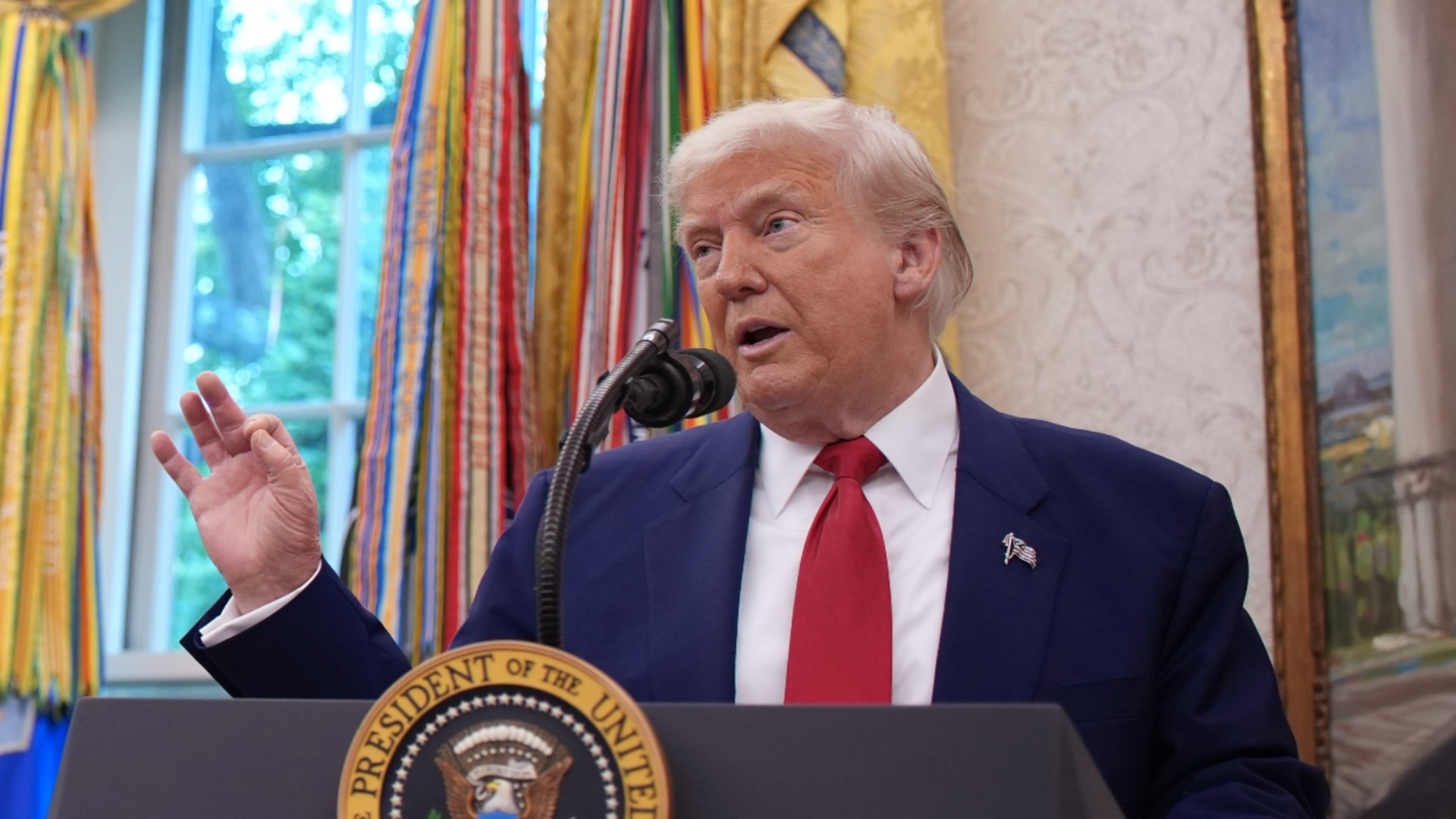
Top Trump officials are closely monitoring the words and actions of university leaders. Columbia University interim President Claire Shipman in her recent commencement speech mentioned the absence of pro-Palestinian student Mahmoud Khalil, who is the custody of the US Immigration and Customs Enforcement. His detention has drawn protests.
The following day, the university received a notice of civil-rights violation. McMahon said the notice was in the works before Shipman’s speech.
“President Shipman is trying to balance different factions, but I was disappointed,” McMahon said. Naming Khalil wasn’t “necessary for her to say, considering all of the campus unrest that had happened,” McMahon said.
White House officials told Columbia it should be mindful during its search for a permanent president that such comments from university leaders would again jeopardise federal funding, a senior administration official said.
Dhillon, head of the DOJ’s civil-rights division, said “all these schools are in the penalty box, they’re all misbehaving.”
Harvard is taking an aggressive approach, she said.
Columbia, meanwhile, “they’re playing dead,” Dhillon said. “It doesn’t mean their intentions are any different.”
Wall Street Journal

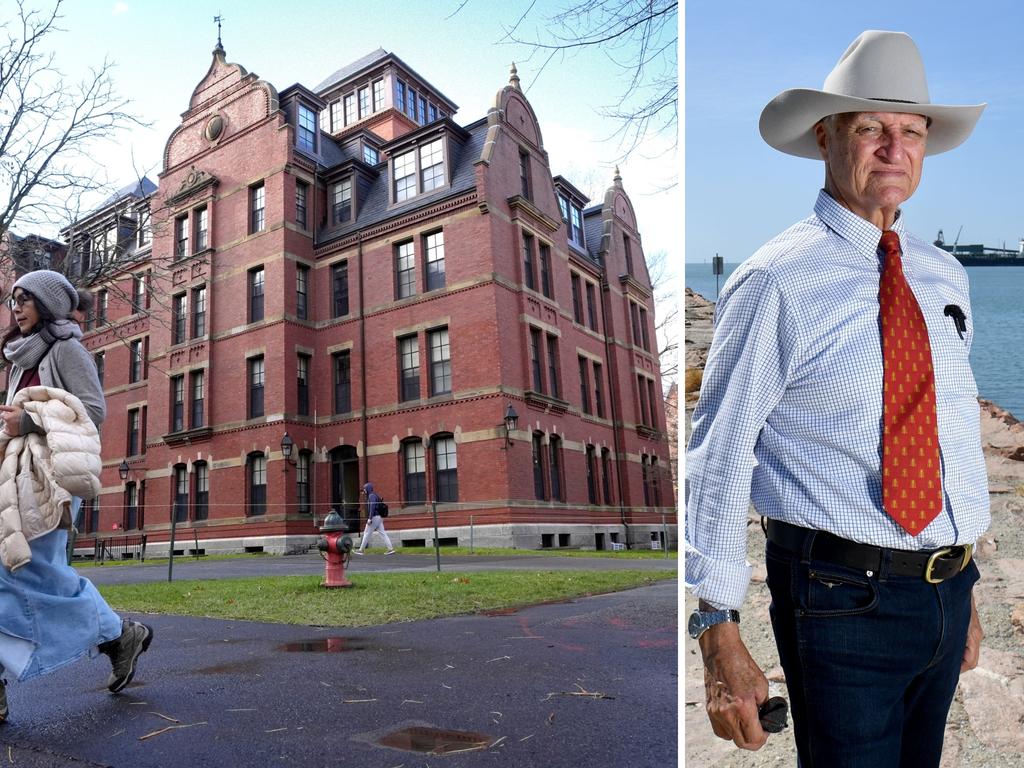

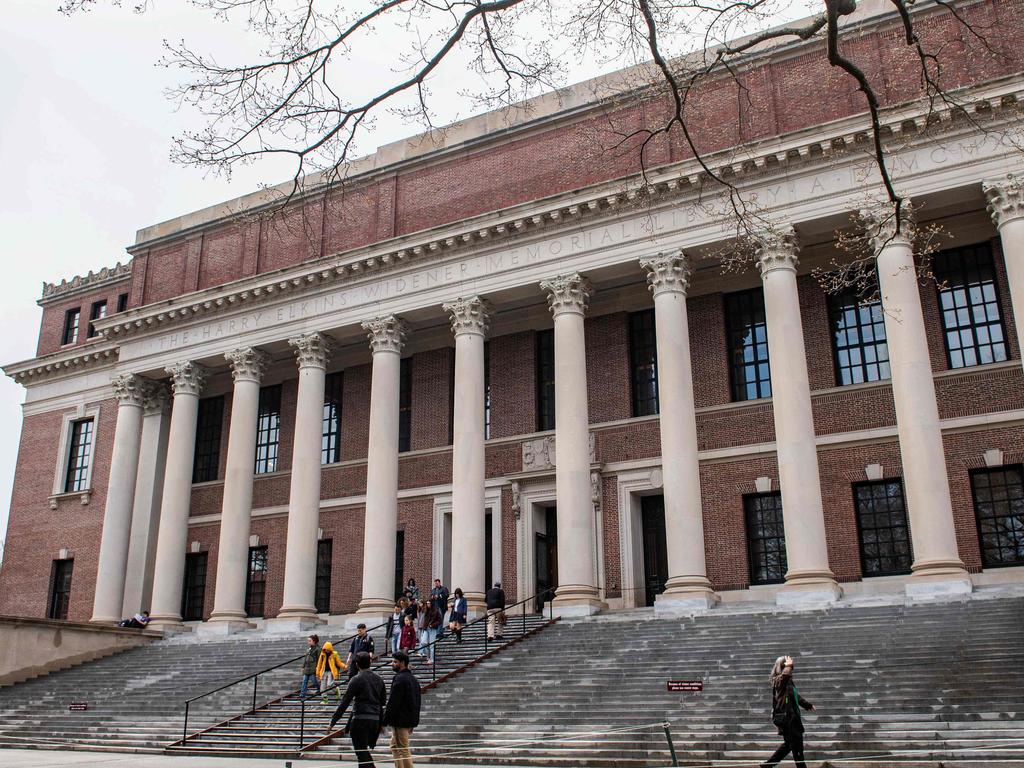
To join the conversation, please log in. Don't have an account? Register
Join the conversation, you are commenting as Logout